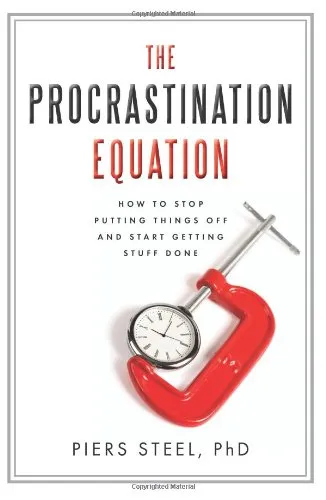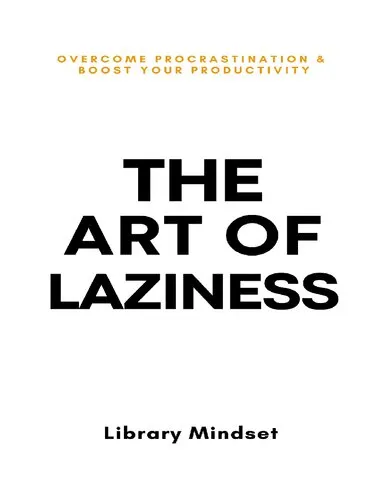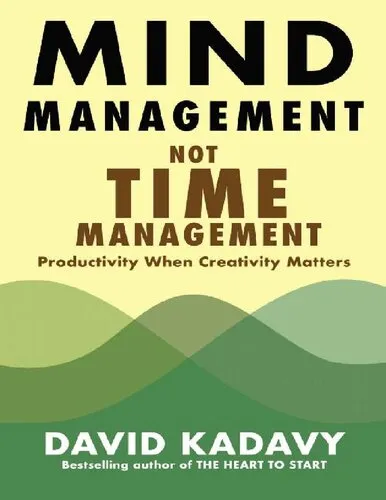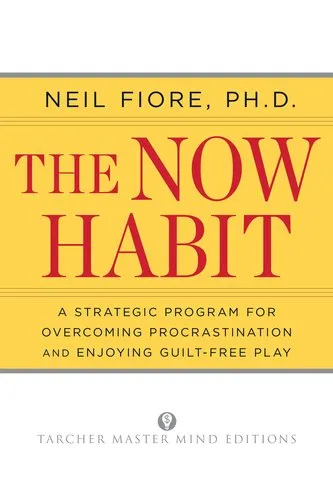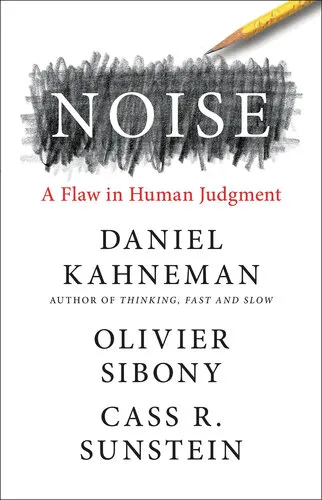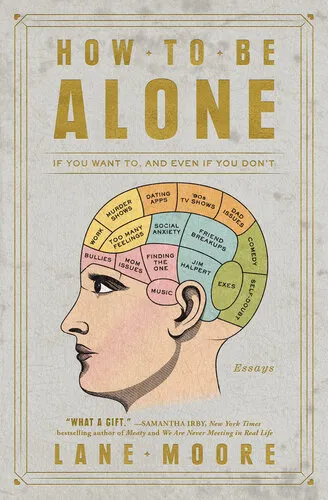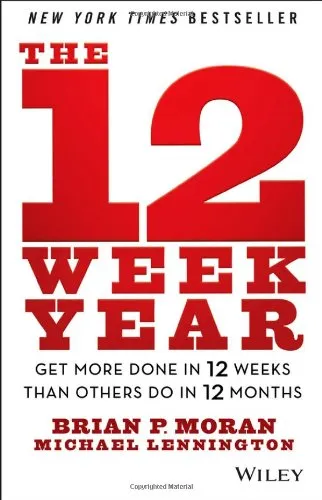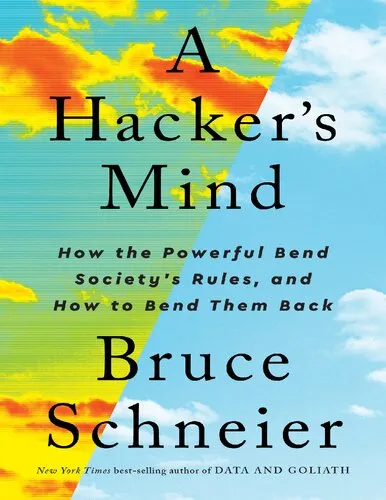The Procrastination Equation: How to Stop Putting Things Off and Start Getting Stuff Done
5.0
بر اساس نظر کاربران

شما میتونید سوالاتتون در باره کتاب رو از هوش مصنوعیش بعد از ورود بپرسید
هر دانلود یا پرسش از هوش مصنوعی 2 امتیاز لازم دارد، برای بدست آوردن امتیاز رایگان، به صفحه ی راهنمای امتیازات سر بزنید و یک سری کار ارزشمند انجام بدینکتاب های مرتبط:
معرفی کامل کتاب
کتاب «The Procrastination Equation: How to Stop Putting Things Off and Start Getting Stuff Done» اثری از پیرز استیل است که به بررسی یکی از مهمترین مسائل روانشناختی و معاصر، یعنی اهمالکاری، میپردازد. این کتاب بر اساس تحقیقات علمی گسترده و رویکردهای عملی و استفاده روزمره نوشته شده است.
خلاصهای از کتاب
در این کتاب، پیرز استیل به تحلیل دلایل پشت رفتار اهمالکاری و تأثیرات آن بر زندگیمان میپردازد. در ابتدا، او مفهومی به نام "معادله اهمالکاری" را معرفی میکند که ترکیبی از مؤلفههای مختلف مثل انگیزه، زمان و ارزش کار است. سپس، به بررسی هر یک از این مؤلفهها پرداخته و راهکارهایی عملی برای تقویت انگیزه و کاهش اهمالکاری ارائه میدهد.
او توضیح میدهد که چگونه استرس و فاصله زمانی تا مهلت انجام کار میتواند انگیزه را افزایش دهد، اما همچنین هشدار میدهد که اهمالکاری میتواند منجر به استرس و نگرانی بیش از حد شود. استیل با قدرتی بینظیر مباحث روانشناختی را به گونهای ساده و قابل فهم ارائه میکند تا خوانندگان بتوانند به راحتی از ایدههای مطرح شده استفاده کنند.
نکات کلیدی
- شناخت علتهای ریشهای اهمالکاری و نحوهی مدیریت آنها
- افزایش انگیزه با استفاده از تکنیکهای عملی
- تحلیل معادله اهمالکاری و استفاده کاربردی از آن در زندگی روزمره
- برنامهریزی زمان به مهارتها و استراتژیهای مؤثر
جملات مشهور کتاب
"اهمالکاری تنها یک مشکل مدیریت زمان نیست؛ بلکه مسئلهی مدیریت انگیزش است."
"ما اغلب به اهمالکاری به عنوان ضعف شخصیت نگاه میکنیم، اما واقعیت این است که حتی آدمهای باتجربه هم دچار این مسئله میشوند."
چرا این کتاب مهم است
کتاب پیرز استیل به خوانندگان خود ابزارها و دانش لازم برای مقابله با یکی از بزرگترین چالشهای روحی در عصر حاضر را میدهد: اهمالکاری. با ارائهی تکنیکهای مؤثر و کاربردی، این اثر به شما کمک میکند تا توانایی مدیریت انگیزه و زمان خود را به سطح جدیدی ارتقا دهید.
این کتاب به دانشآموزان، کارمندان و حتی کارفرمایان کمک میکند تا بخشی از مشکلات روزمره خود را که ناشی از اهمالکاری است، برطرف کنند و راههایی برای بهبود خروجیهای خود بیابند.
Welcome to The Procrastination Equation
Discover the science behind why we procrastinate and learn practical strategies to overcome it.
The act of putting off tasks is a common struggle, universally experienced across ages and cultures. "The Procrastination Equation: How to Stop Putting Things Off and Start Getting Stuff Done" breaks down this complex habit by exploring its psychological roots and offering actionable solutions. Let’s embark on a journey to understand and eventually conquer procrastination.
Detailed Summary of the Book
In "The Procrastination Equation," I explore the intricate dynamics of procrastination by examining what influences our delay in actions. The book is structured around a simple yet profound equation that I crafted after years of research:
Motivation = (Expectancy × Value) / (Impulsiveness × Delay)
This equation captures the subtleties of procrastination. It proposes that motivation increases when expectancy (our confidence in succeeding) and value (the perceived reward) are high. Conversely, motivation decreases with greater impulsiveness (our tendency to get distracted) and delay (the time before a task’s rewards are realized). Through each chapter, the equation is elaborated upon with empirical studies, anecdotes, and experiments, providing a comprehensive context that helps readers reconcile with their procrastinative tendencies.
The reader is taken through a psychological and practical tour that not only deconstructs procrastination but also offers strategies to enhance self-control, boost motivation, and set realistic goals. With each element of the equation, I provide tips to manage them actively. For instance, boosting expectancy involves fostering self-efficacy skills, and enhancing value calls for aligning tasks with your intrinsic goals and desires.
Key Takeaways
- Understand the fundamental reasons why we procrastinate and how it affects every aspect of our lives.
- Gain insights from scientific research on motivation and human behavior through the lens of the procrastination equation.
- Learn practical methods to increase motivation and productivity by tackling each element of the equation individually.
- Discover psychological and behavioral tactics to minimize distractions and impulsiveness.
- Figure out how to make long-term rewards more enticing and align daily tasks with personal aspirations.
Famous Quotes from the Book
"Procrastination is more than just putting off a task, it is a complex psychological behavior that requires understanding before elimination."
"With the right strategies, we can set the path to our goals, piece by piece, battle by battle, until procrastination is but a whisper of 'should have done it sooner.'
Why This Book Matters
This book delves into the heart of procrastination, offering a profound comprehension beyond traditional time-management advice. It matters because it combines scientific rigor with practical application, making it relevant for anyone who struggles with delay, be it in the workplace, academics, or personal tasks. In today's fast-paced world, where distractions are abundant and responsibilities are incessant, understanding and overcoming procrastination is crucial to achieving personal and professional growth.
Moreover, "The Procrastination Equation" equips readers not only with theoretical knowledge but also with tools and strategies that are empirically validated, making the battle against procrastination both manageable and winnable. As you immerse yourself in the book, you’ll find encouragement, understanding, and empowerment — all the elements necessary for fostering an effective change in habit.
دانلود رایگان مستقیم
شما میتونید سوالاتتون در باره کتاب رو از هوش مصنوعیش بعد از ورود بپرسید
دسترسی به کتابها از طریق پلتفرمهای قانونی و کتابخانههای عمومی نه تنها از حقوق نویسندگان و ناشران حمایت میکند، بلکه به پایداری فرهنگ کتابخوانی نیز کمک میرساند. پیش از دانلود، لحظهای به بررسی این گزینهها فکر کنید.
این کتاب رو در پلتفرم های دیگه ببینید
WorldCat به شما کمک میکنه تا کتاب ها رو در کتابخانه های سراسر دنیا پیدا کنید
امتیازها، نظرات تخصصی و صحبت ها درباره کتاب را در Goodreads ببینید
کتابهای کمیاب یا دست دوم را در AbeBooks پیدا کنید و بخرید
1636
بازدید5.0
امتیاز1
نظر98%
رضایتنظرات:
5.0
بر اساس 1 نظر کاربران
saravanakumar5
17 اکتبر 2024، ساعت 17:16
This equation captures the subtleties of procrastination. It proposes that motivation increases when expectancy (our confidence in succeeding) and value (the perceived reward) are high. Conversely, motivation decreases with greater impulsiveness (our tendency to get distracted) and delay (the time before a task’s rewards are realized). Through each chapter, the equation is elaborated upon with empirical studies, anecdotes, and experiments, providing a comprehensive context that helps readers reconcile with their procrastinative tendencies.
Questions & Answers
Ask questions about this book or help others by answering
No questions yet. Be the first to ask!
